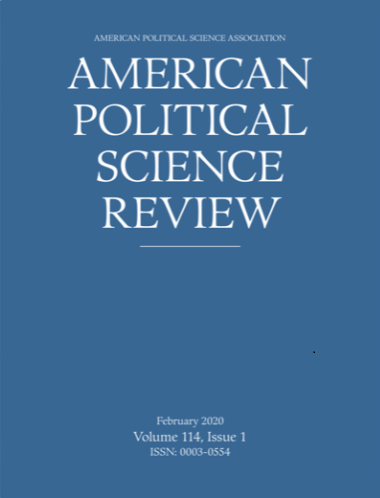党派回音室的两极分化效应
IF 5.8
1区 社会学
Q1 POLITICAL SCIENCE
引用次数: 0
摘要
我们正在目睹世界各地日益加剧的党派分化。人们经常认为,党派的“回音室”是政策和情感两极分化的驱动因素之一。在本文中,我们发展并检验了人们社会环境的政治同质性塑造两极分化的论点。我们在英国进行了一项创新的、大规模的预先注册的“现场实验室”实验,研究了党派群体同质性如何影响两极分化。我们招募具有全国代表性的党派人士,并指派他们与志同道合的党派人士(回音室)或混合党派团体讨论一个突出的政策问题。这使我们能够研究群体构成如何影响极化。与我们的预期一致,我们发现与混合讨论组相比,党派回声室增加了政策和情感两极分化。这对我们理解两极分化的驱动因素以及如何在公众中改善群体外敌意具有重要意义。本文章由计算机程序翻译,如有差异,请以英文原文为准。
The Polarizing Effect of Partisan Echo Chambers
We are witnessing increasing partisan polarization across the world. It is often argued that partisan “echo chambers” are one of the drivers of both policy and affective polarization. In this article, we develop and test the argument that the political homogeneity of people’s social environment shapes polarization. Using an innovative, large-scale pre-registered “lab-in-the-field” experiment in the United Kingdom, we examine how polarization is influenced by partisan group homogeneity. We recruit nationally representative partisans and assign them to discuss a salient policy issue, either with like-minded partisans (an echo chamber) or in a mixed-partisan group. This allows us to examine how group composition affects polarization. In line with our expectations, we find that partisan echo chambers increase both policy and affective polarization compared to mixed discussion groups. This has important implications for our understanding of the drivers of polarization and for how out-group animosity might be ameliorated in the mass public.
求助全文
通过发布文献求助,成功后即可免费获取论文全文。
去求助
来源期刊

American Political Science Review
POLITICAL SCIENCE-
CiteScore
9.80
自引率
5.90%
发文量
119
期刊介绍:
American Political Science Review is political science''s premier scholarly research journal, providing peer-reviewed articles and review essays from subfields throughout the discipline. Areas covered include political theory, American politics, public policy, public administration, comparative politics, and international relations. APSR has published continuously since 1906. American Political Science Review is sold ONLY as part of a joint subscription with Perspectives on Politics and PS: Political Science & Politics.
 求助内容:
求助内容: 应助结果提醒方式:
应助结果提醒方式:


